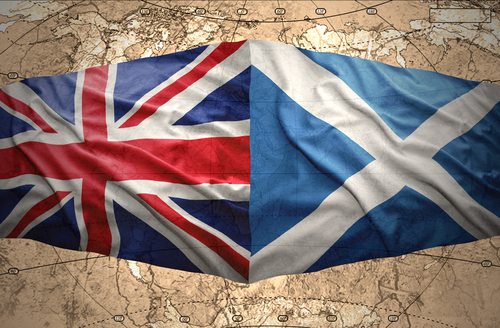There is no credible plan for deficit reduction – even though Scotland’s net deficit will be as large, as well as more volatile, than the rest of the UK; no clarity over what currency it will use; or its future relationship with the European Union.
The UK’s leading business group argues that the White Paper fails to provide a coherent vision for how an independent Scotland would be better off economically from putting up barriers with its biggest export market – the UK.
The analysis confirms the CBI’s view that the best way to deliver jobs and prosperity to the people of Scotland is for it to remain part of the UK.
John Cridland, CBI Director-General, said: “The minute you draw a line between Gretna and Berwick, Scotland starts to drift apart from its biggest market and loses a significant amount of economic clout.
“The economic plan outlined in the White Paper does not add up. It ignores the need for deficit reduction, instead promising more unfunded spending.
“On the key issues that are critical to jobs and growth, the White Paper’s lack of clarity runs the risk of jeopardising an independent Scotland’s future success.
“Independence would force Scotland’s major industries to grapple with two lots of red tape and lead to Scots facing higher borrowing costs on loans, mortgages and credit cards.
“Keeping the pound is the best option for Scotland but that is only on offer through maintaining the union. The main UK political parties have ruled out currency union as an option, so we’re calling on the Scottish Government to set out a credible plan B.
“An independent Scotland would also have to negotiate hard to get back into the EU, temporarily losing access to the world’s biggest trade area with huge economic consequences.
“Scotland’s economy is a real success story as part of the UK – it has the independence and flexibility of devolution alongside the support of the union.
The fate of Scotland is, of course, a decision for the Scottish people, but business is clear – we are stronger together.”
The CBI’s analysis reveals that the Scottish Government’s plans for tax and spend fail to take into account that the squeeze on public services will intensify as the number of Scottish people over-65s grows.
The CBI is also concerned about the negative knock-on effect independence could have on Scotland’s major economic sectors including: defence & aerospace, financial services, energy, food & drink and higher education which together employ almost a million people. As part of the UK, they trade within a closely-integrated internal market; benefit from common regulatory and supervisory organisations; are backed by UK Government support through dedicated industrial strategies; and boast access to the world’s largest single trade market through the European Union.


